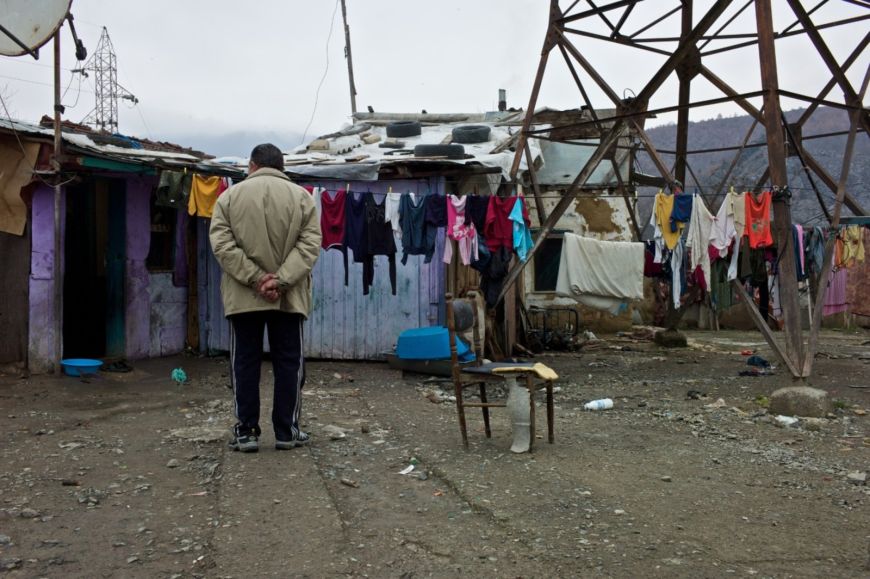Growing global inequality and injustices

This differentiation between the global North and the global South does not refer to the geographical situation of each country in relation to the Equator, (Australia is economically in the North!), but to a much more complex economic and political situation.
Only a small minority of this planet's inhabitants enjoy the benefits of this smaller world we referred to earlier: technological advances and consumption levels which surpass basic needs. The terms ‘global North’ and ‘global South’ are generalisations, and there are many differences among countries from each group. It is undeniable, however, that the real frontier dividing the global North from the global South is poverty.
What is often common to some of the countries in the global South and global North is the shared history of a colonial past, of economic exploitation and disadvantageous international trade agreements in exchange for the recognition of the independence of a country.
In the first quarter of the 21st century, the global North was home to 25% of the population of the world and had four-fifths of the global income, while producing 90% of the manufactured goods1. At the same time, the ‘South’ hosted three-quarters of the world population and had only one-fifth of the global income. This is also clearly illustrated by access to COVID-19 vaccines: in January 2021, the World Health Organisation (WHO) reported that while 39 million doses had been administered in nearly 50 richer countries, only 25 vaccines had been given in one of the lowest income nations. Despite the COVAX Pillar co-led by the WHO, which seeks to ensure that all countries have fair and equitable access to COVID-19 vaccines, the WHO director spoke of how COVID-19 vaccination procurement schemes have revealed “another brick in the wall of inequality between the world’s haves and have-nots” and of “a catastrophic moral failure”.
The world is on the brink of a catastrophic moral failure – and the price of this failure will be paid with lives and livelihoods in the world’s poorest countries.
Dr Tedros Adhanom Ghebreyesus, WHO Director-General, 18 January 2021

In 1791, in the French colony of Saint-Domingue, a slave revolution started, inspired by the ideals of the French Revolution of 1789 and the principles of the rights of men. Following years of battles between the slave armies and the French and British armies, the independence of Haiti was proclaimed in 1801. This is the only slave revolution to result in the establishment of an independent state. However, the new country was not recognised by “great powers” easily and found itself unable to enter the global market. France eventually recognised the country in exchange for a payment of 150 million francs in 1821. This obliged the Haitian government to borrow at disadvantageous interest rates from western banks and the debt was only finally paid in 1947. Haiti is currently the poorest country in the Western Hemisphere, ranking 169 out of 189 on the Human Development Index.
An imbalance every one of us helps to maintain
After the Second World War, the present international economic order was created by a small number of “Northern” countries. These countries imposed rules and created structures that reflected their interests (for example, the International Monetary Fund, the World Bank) and made use of resources that were not theirs. In a few words: they designed a system by which the development of the few was supported by the poverty of the majority.
Other, subtler forms of dependency became the norm and their main expression can be found in the concept of foreign debt, which burdens most of the developing countries. Countries in the ‘South’ became trapped into a system of having to exploit and sell their primary resources in order to pay for machinery and technology.
Since the late 1990s, the political concept of the global ‘South’ has been considered less attractive on the international political scene and other narratives about poverty have started to be used. In the late 1990s, the United Nations Development Programme started to develop a model of poverty that was based on the lived experiences of people. Poverty, in this model, is understood to be a combination of three areas: education, health and living standards. This recognises the interconnectedness of human rights and the ways that violations of one right determine violations or reduced capacity to access and exercise other rights.

In 2020, the number of people “of concern” to the United Nations High Commission for Refugees was 79.5 million (in 1974, the figure was 2.4 million), out of which 26 million are refugees, 4.2 million are asylum seekers and 45.7 million people are internally displaced. Most refugees come from 5 countries: Syria, Venezuela, Afghanistan, South Sudan and Myanmar, and 82% are hosted in developing countries. Can you imagine what these figures really mean in terms of human tragedy?
1 Ollie Tait, The North-South Divide, July 2016.


